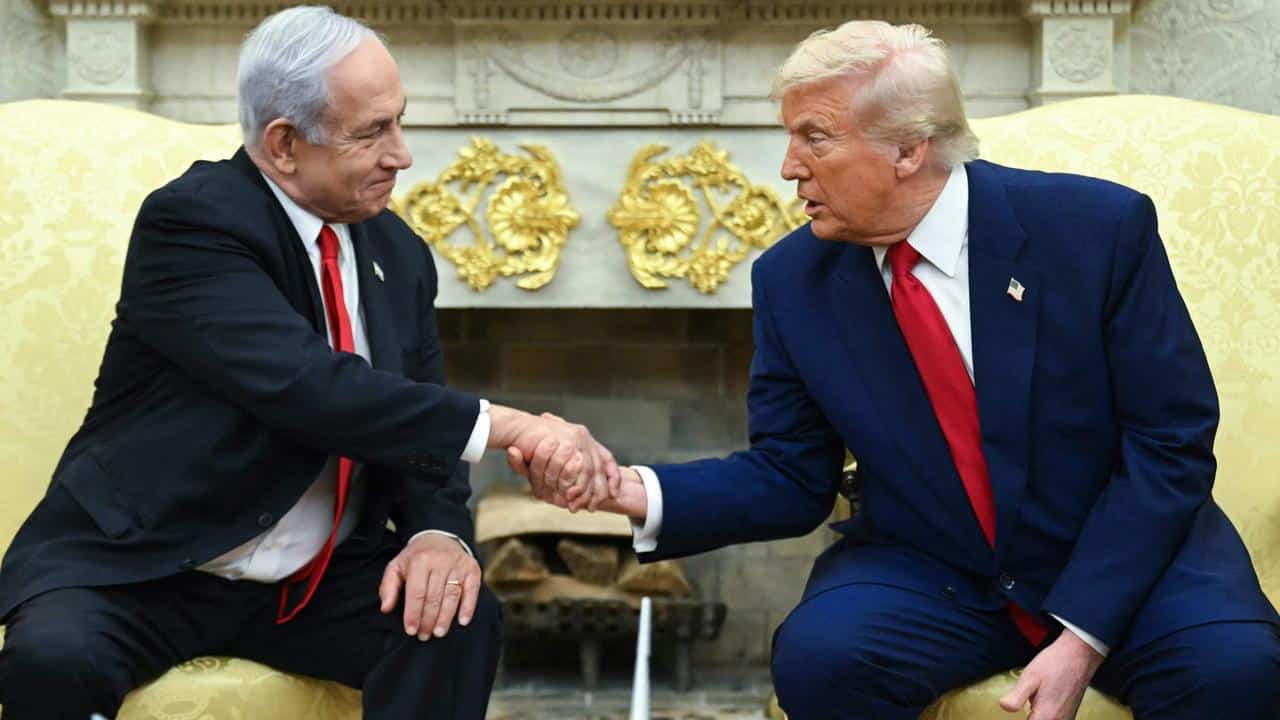US Proposes ‘Economic Bunker Buster’ Legislation: Implications for Donald Trump

India, one of the largest importers of crude oil from Russia, is facing potential economic repercussions from a new U.S. bill that proposes a staggering 500% tariff on countries that continue to import Russian oil. Senator Lindsey Graham, a key proponent of this legislation, aims to pressure nations like India and China to halt their purchases from Russia, thereby undermining President Vladimir Putin’s war efforts in Ukraine. The bill has garnered significant support, with 84 co-sponsors, and could reshape the dynamics of global oil trade.
Understanding the Proposed 500% Tariff
The proposed legislation, which has gained traction in Congress, seeks to impose hefty tariffs on countries that import goods from Russia without supporting Ukraine. Senator Graham emphasized that the goal is to weaken Moscow’s wartime economy and compel President Putin to engage in negotiations regarding the ongoing conflict in Ukraine. The bill, first introduced in March, is expected to advance in August, aligning with the U.S. government’s broader strategy to tighten economic sanctions against Russia. This initiative comes as the Biden administration appears more willing to endorse such measures, despite previous hesitations linked to diplomatic relations with Russia. The bill’s passage would provide the U.S. president with the authority to impose tariffs on nations like India and China, which collectively account for 70% of Russian oil purchases.
The Impact on India’s Oil Imports
India’s oil import strategy has dramatically shifted since Russia’s invasion of Ukraine in February 2022. The country has moved away from its traditional Middle Eastern suppliers, opting instead for Russian oil, which has become more accessible due to Western sanctions. In May, India imported approximately 1.96 million barrels per day (bpd) of Russian crude, marking a significant increase from previous years. Russian oil now constitutes about 40-44% of India’s total crude purchases, a remarkable rise from less than 1% prior to the conflict. In June, India’s imports of Russian oil surpassed those from Saudi Arabia and Iraq, reflecting a strategic pivot amidst global market uncertainties. As the world’s third-largest oil consumer, India has secured around 5.1 million barrels of crude oil, which is refined into various fuel products. The potential imposition of a 500% tariff could severely disrupt this new procurement strategy, impacting India’s energy security and economic stability.
Will the Bill Be Signed into Law?
Senator Graham has indicated that if the bill passes through Congress, President Trump would retain the discretion to implement it through a waiver provision. This means that Trump could choose whether to enforce the tariffs based on the geopolitical landscape at the time. Graham noted that the bill aims to provide the president with a powerful tool to influence foreign policy regarding Russia. The senator expressed confidence that the legislation would gain traction after Congress reconvenes following its summer break. However, the actual implementation of such a significant tariff remains uncertain, as it would depend on the political climate and the president’s strategic decisions.
Russia’s Reaction to the Proposed Tariff
In response to the proposed tariff, Kremlin spokesperson Dmitry Peskov acknowledged awareness of Senator Graham’s statements, labeling him as part of a group of “inveterate Russophobes.” Peskov questioned the effectiveness of such sanctions, suggesting they would not contribute to resolving the conflict in Ukraine. He emphasized that the imposition of tariffs could further complicate diplomatic efforts and urged those advocating for sanctions to reconsider their approach. As the situation evolves, the Kremlin’s stance reflects a broader concern about the potential economic fallout from increased sanctions and their impact on international relations.
Observer Voice is the one stop site for National, International news, Sports, Editor’s Choice, Art/culture contents, Quotes and much more. We also cover historical contents. Historical contents includes World History, Indian History, and what happened today. The website also covers Entertainment across the India and World.
Follow Us on Twitter, Instagram, Facebook, & LinkedIn

